 Set in the early 1940s, this story by Truman Capote explores the relationship between a budding writer and his downstairs neighbour, mysterious New York café society girl Holly (Holiday) Golightly. Holly lives by socializing with, and seeking a husband from among, wealthy men who take her to clubs and restaurants and give her money and expensive gifts. Unfortunately, a side hustle with a jailed mob boss forces a hasty exit from the country, after which she is not seen again. Themes include freedom, independence and privacy, sexuality, manipulation, yearning for wealth, love and happiness.
Set in the early 1940s, this story by Truman Capote explores the relationship between a budding writer and his downstairs neighbour, mysterious New York café society girl Holly (Holiday) Golightly. Holly lives by socializing with, and seeking a husband from among, wealthy men who take her to clubs and restaurants and give her money and expensive gifts. Unfortunately, a side hustle with a jailed mob boss forces a hasty exit from the country, after which she is not seen again. Themes include freedom, independence and privacy, sexuality, manipulation, yearning for wealth, love and happiness.
Category Archives: Novellas
Carmilla
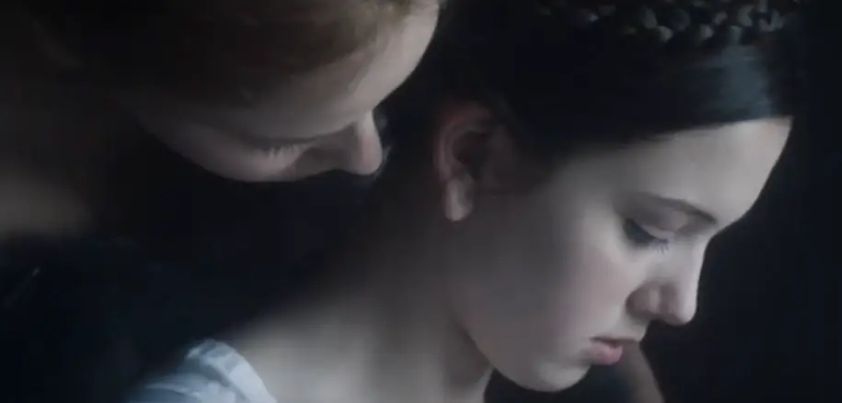 This 1872 novella by Sheridan Le Fanu was ground-breaking in several ways. It is not only one of the first examples of vampire fiction (pre-dating Bran Stoker’s Dracula by 25 years), but also the first to infer a lesbian element to vampiric attraction. This vampire seems to have a taste for blue blood. Peasant victims die quickly; two young aristocratic women enjoy her seductive company for longer. Could Carmilla have something else in mind for these two, such as spending eternity together? Themes: class differences, patriarchy, the supernatural, female sexuality, life and death. More…
This 1872 novella by Sheridan Le Fanu was ground-breaking in several ways. It is not only one of the first examples of vampire fiction (pre-dating Bran Stoker’s Dracula by 25 years), but also the first to infer a lesbian element to vampiric attraction. This vampire seems to have a taste for blue blood. Peasant victims die quickly; two young aristocratic women enjoy her seductive company for longer. Could Carmilla have something else in mind for these two, such as spending eternity together? Themes: class differences, patriarchy, the supernatural, female sexuality, life and death. More…
Animal Farm
 Given events taking place in modern-day Russia, it is timely to revisit this classic political satire from George Orwell. Included in Time Magazine’s list of the 100 best English language novels, the story is an allegory of the 1917 Russian Revolution and rise of Stalinism. Major themes (and the reasons for its relevance today) are the lust for and corrupting effect of power, and how an unenlightened populace can be manipulated into continued acceptance of a failed/corrupt political system. Other themes: idealism, political transition (autocracy→ socialism→ communism→ autocracy), class, animal cruelty (= exploitation of the working class). More…
Given events taking place in modern-day Russia, it is timely to revisit this classic political satire from George Orwell. Included in Time Magazine’s list of the 100 best English language novels, the story is an allegory of the 1917 Russian Revolution and rise of Stalinism. Major themes (and the reasons for its relevance today) are the lust for and corrupting effect of power, and how an unenlightened populace can be manipulated into continued acceptance of a failed/corrupt political system. Other themes: idealism, political transition (autocracy→ socialism→ communism→ autocracy), class, animal cruelty (= exploitation of the working class). More…
Heart of Darkness
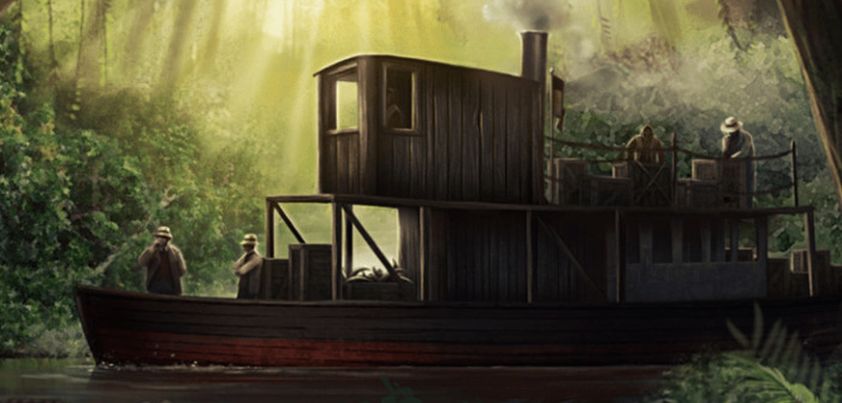 This story by Joseph Conrad is told through the eyes of a riverboat captain sent into the heart of Africa to contact an enigmatic trading post manager employing questionable methods. It explores the concept of Darkness on several levels. At the highest, we have the ‘darkness’ of unexplored Africa, and the ‘darkness’ of European imperialism in seeking to subjugate its peoples and exploit its resources. On a more fundamental level, we have the potential ‘darkness’ (capacity for cruelty/evil) in the heart of every man. Themes include alienation and loneliness, power, moral and mental degeneration under colonialism, racism, cruelty, greed, exploitation. More…
This story by Joseph Conrad is told through the eyes of a riverboat captain sent into the heart of Africa to contact an enigmatic trading post manager employing questionable methods. It explores the concept of Darkness on several levels. At the highest, we have the ‘darkness’ of unexplored Africa, and the ‘darkness’ of European imperialism in seeking to subjugate its peoples and exploit its resources. On a more fundamental level, we have the potential ‘darkness’ (capacity for cruelty/evil) in the heart of every man. Themes include alienation and loneliness, power, moral and mental degeneration under colonialism, racism, cruelty, greed, exploitation. More…
Small Change
 This impressionistic novella by Yehudit Hendel describes the psychological trauma experienced by an Israeli woman while imprisoned for a minor crime in post-World War 2 Switzerland. After growing up in an oppressive atmosphere dominated by a cold, autocratic father, her nightmarish ordeal is an allusion to Germany’s inhuman treatment of detainees during the holocaust. Although severely impacted by the experience, she is empowered to rebel against her cruel, obsessive father, who has cared more about his stamp and small change collections than his family. Themes: parent-child relationships, obsession, anti-Semitism, injustice, cruelty and sexual violence, self-empowerment. More…
This impressionistic novella by Yehudit Hendel describes the psychological trauma experienced by an Israeli woman while imprisoned for a minor crime in post-World War 2 Switzerland. After growing up in an oppressive atmosphere dominated by a cold, autocratic father, her nightmarish ordeal is an allusion to Germany’s inhuman treatment of detainees during the holocaust. Although severely impacted by the experience, she is empowered to rebel against her cruel, obsessive father, who has cared more about his stamp and small change collections than his family. Themes: parent-child relationships, obsession, anti-Semitism, injustice, cruelty and sexual violence, self-empowerment. More…
One Day in the Life of Ivan Denisovich
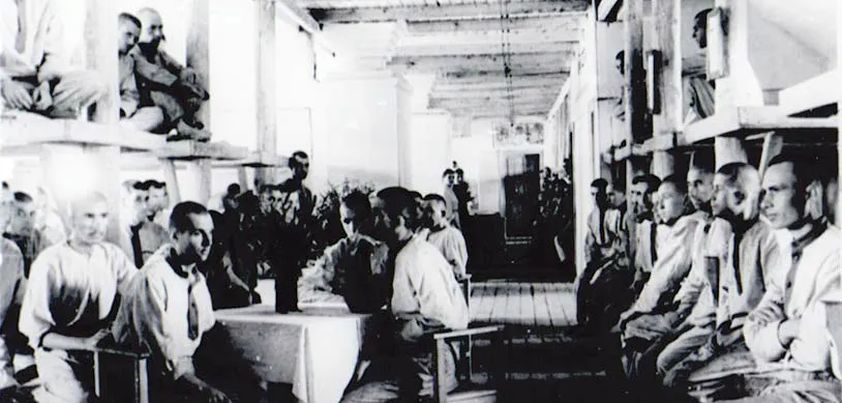 This fictional account of life in a former Soviet Gulag (forced labor camp) is drawn from author Alexandr Solzhenitsyn’s personal experience as a prisoner under the Stalin regime. Its major theme is survival in a system designed to break inmates through a combination of harsh conditions, brutality and absurd camp rules. Some survive with dignity, others through theft, scavenging, and snitching on fellow prisoners. The weak and those who question the system don’t survive. Other themes include injustice, power and authority, corruption, cruelty, suffering, endurance, pride, camaraderie, competition, faith, memories and time. More…
This fictional account of life in a former Soviet Gulag (forced labor camp) is drawn from author Alexandr Solzhenitsyn’s personal experience as a prisoner under the Stalin regime. Its major theme is survival in a system designed to break inmates through a combination of harsh conditions, brutality and absurd camp rules. Some survive with dignity, others through theft, scavenging, and snitching on fellow prisoners. The weak and those who question the system don’t survive. Other themes include injustice, power and authority, corruption, cruelty, suffering, endurance, pride, camaraderie, competition, faith, memories and time. More…
The Pearl
 This novella from John Steinbeck describes a battle between good and evil and exposes the best and worst in human nature. Sadly, evil wins out. An uneducated Mexican-Indian pearl diver from a poor fishing community outside a Spanish town dreams of a better life for his family after discovering a pearl as large as a sea-gull’s egg on the ocean floor. After multiple instances of townspeople trying to manipulate and cheat him and later, to violently steal the pearl, his dream turns into a tragic nightmare. Themes: family/community, racism, colonialism, oppression, materialism, greed, corruption, fate. More…
This novella from John Steinbeck describes a battle between good and evil and exposes the best and worst in human nature. Sadly, evil wins out. An uneducated Mexican-Indian pearl diver from a poor fishing community outside a Spanish town dreams of a better life for his family after discovering a pearl as large as a sea-gull’s egg on the ocean floor. After multiple instances of townspeople trying to manipulate and cheat him and later, to violently steal the pearl, his dream turns into a tragic nightmare. Themes: family/community, racism, colonialism, oppression, materialism, greed, corruption, fate. More…
Death in Venice
 This Thomas Mann classic is renowned for its masterful psychological profile of Aschenbach, a jaded, aging writer who develops an unhealthy infatuation with a fourteen-year-old-boy during a Venetian holiday. Although the novella’s central theme (homosexuality) is no longer controversial, other aspects of the story (pedophilia and stalking) certainly are. Sympathy for Aschenbach is greatly diminished when, out of selfishness, he decides not to warn the holidaying boy’s family about a deadly epidemic being covered up by authorities. Many readers see Aschenbach’s fate as just punishment for his actions. Other themes: art and the artist, alienation, obsession, depravity, death. More…
This Thomas Mann classic is renowned for its masterful psychological profile of Aschenbach, a jaded, aging writer who develops an unhealthy infatuation with a fourteen-year-old-boy during a Venetian holiday. Although the novella’s central theme (homosexuality) is no longer controversial, other aspects of the story (pedophilia and stalking) certainly are. Sympathy for Aschenbach is greatly diminished when, out of selfishness, he decides not to warn the holidaying boy’s family about a deadly epidemic being covered up by authorities. Many readers see Aschenbach’s fate as just punishment for his actions. Other themes: art and the artist, alienation, obsession, depravity, death. More…
The Man Who Lived Underground
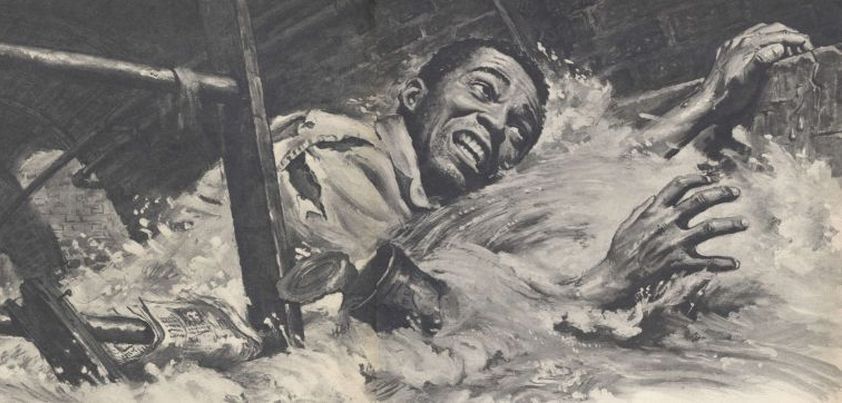 This is the shortened, anthologized version of this Richard Wright title, not the recently released (2021) novel. Having said that, it is still a very powerful story. An innocent man, tortured by police into confessing to murder, escapes and takes refuge in the sewers and basements of an unnamed city. As he struggles for survival, uncertainty and sensory deprivation cause him to lose touch with reality. He comes to believe that all men are inherently evil and, unable to go on, decides to face his guilt by handing himself in. Themes: guilt vs. innocence, isolation, identity, racism, police brutality. More…
This is the shortened, anthologized version of this Richard Wright title, not the recently released (2021) novel. Having said that, it is still a very powerful story. An innocent man, tortured by police into confessing to murder, escapes and takes refuge in the sewers and basements of an unnamed city. As he struggles for survival, uncertainty and sensory deprivation cause him to lose touch with reality. He comes to believe that all men are inherently evil and, unable to go on, decides to face his guilt by handing himself in. Themes: guilt vs. innocence, isolation, identity, racism, police brutality. More…
The Death of Ivan Ilyich
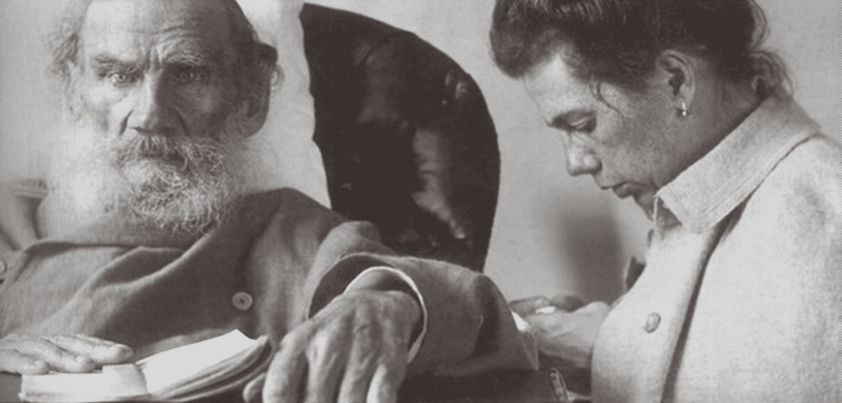 The major themes of this famous novella by Leo Tolstoy are the inevitability of death and the shallowness of Russia’s bourgeoisie. As Ivan Ilyich, a successful civil servant, faces an early, agonizing death he asks himself the inevitable question: How could that be, when I did everything [in life] properly? By bourgeoisie standards, his assessment is correct. However, by general social standards Ivan’s superficial, self-centered life lacked compassion, genuine connection, and spiritual meaning. As Ivan’s suffering strips away his delusions, he finds joy and redemption in death. Other themes: appearance and materialism, suffering, denial, isolation, acceptance and redemption. More…
The major themes of this famous novella by Leo Tolstoy are the inevitability of death and the shallowness of Russia’s bourgeoisie. As Ivan Ilyich, a successful civil servant, faces an early, agonizing death he asks himself the inevitable question: How could that be, when I did everything [in life] properly? By bourgeoisie standards, his assessment is correct. However, by general social standards Ivan’s superficial, self-centered life lacked compassion, genuine connection, and spiritual meaning. As Ivan’s suffering strips away his delusions, he finds joy and redemption in death. Other themes: appearance and materialism, suffering, denial, isolation, acceptance and redemption. More…
Unaccustomed Earth
 The major themes of this story from Jhumpa Lahiri are connection (daughter-parents, grandfather-grandson) and biculturalism (how different generations respond to belonging to two different cultures). A widowed Indian immigrant visits his daughter and three-year-old grandson. The visit triggers memories of the difficulties and frustrations the daughter experienced growing with parents who had different values and beliefs to their adopted culture. It also highlights her lonely, isolated life and strained marriage, and an inner-conflict she feels about the Indian cultural practice of a child taking a widowed parent into their home. Other themes: death and grief, moving on, independence, companionship, loneliness. More…
The major themes of this story from Jhumpa Lahiri are connection (daughter-parents, grandfather-grandson) and biculturalism (how different generations respond to belonging to two different cultures). A widowed Indian immigrant visits his daughter and three-year-old grandson. The visit triggers memories of the difficulties and frustrations the daughter experienced growing with parents who had different values and beliefs to their adopted culture. It also highlights her lonely, isolated life and strained marriage, and an inner-conflict she feels about the Indian cultural practice of a child taking a widowed parent into their home. Other themes: death and grief, moving on, independence, companionship, loneliness. More…
The Beast in the Jungle
 Despite a relatively simple plot and only two main characters, this short novella by Henry James can be hard-going on the first read. A man is obsessed with the feeling that misfortune of some kind will come into his life “like a beast in the jungle”. He shares the premonition with a female acquaintance, who is interested enough to agree to stay close and “watch his back”. In order to build suspense in the lead-up to the story’s heartbreaking conclusion, James shrouds the interactions between the two in confusion and ambiguity. Themes: fate, obsession, connection, insensitivity, suffering, death, guilt. More…
Despite a relatively simple plot and only two main characters, this short novella by Henry James can be hard-going on the first read. A man is obsessed with the feeling that misfortune of some kind will come into his life “like a beast in the jungle”. He shares the premonition with a female acquaintance, who is interested enough to agree to stay close and “watch his back”. In order to build suspense in the lead-up to the story’s heartbreaking conclusion, James shrouds the interactions between the two in confusion and ambiguity. Themes: fate, obsession, connection, insensitivity, suffering, death, guilt. More…
The Stains
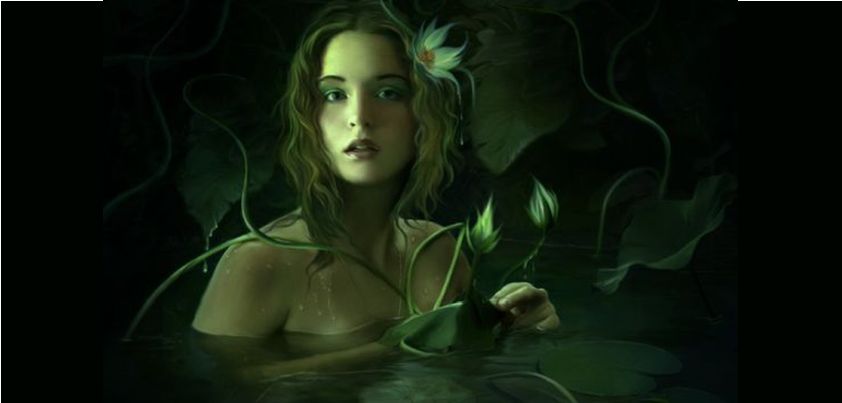 The major themes of this unsettling horror story from Robert Aickman are grief, ‘romance’ and death. With many twists and turns along the way, a grieving widower becomes infatuated with an enigmatic, nymph-like girl he meets in the woods. As their steamy romance plays out, he and everything around him begin to be covered in strange, lichen-like stains. In typical Aickman style, rather than a denouement that ties things nicely together, the abrupt conclusion leaves the reader with more questions than it answers. Other themes: innocence, lust, modern vs. rustic lifestyle, denial (of the stains). More…
The major themes of this unsettling horror story from Robert Aickman are grief, ‘romance’ and death. With many twists and turns along the way, a grieving widower becomes infatuated with an enigmatic, nymph-like girl he meets in the woods. As their steamy romance plays out, he and everything around him begin to be covered in strange, lichen-like stains. In typical Aickman style, rather than a denouement that ties things nicely together, the abrupt conclusion leaves the reader with more questions than it answers. Other themes: innocence, lust, modern vs. rustic lifestyle, denial (of the stains). More…
Don’t Look Now
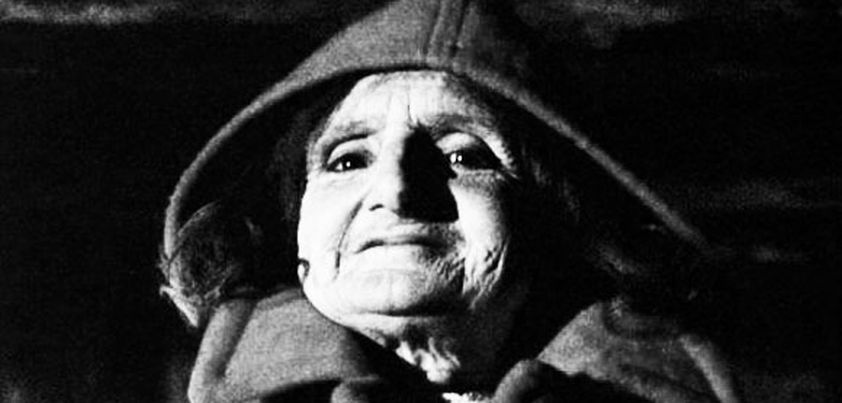 This Daphne du Maurier story opens with a British couple dining in Venice. The holiday, through which they hope to rebuild their relationship following the death of their young daughter, takes an eerie turn when a fellow diner claims to be able to “see” the spirit of the dead girl sitting between them, and issues a grim warning that they should leave Venice immediately. When a family emergency calls them back home later that day, they take this as the meaning of the warning. The wife leaves the next morning; the husband never does. Themes: grief, the supernatural, scepticism, suspicion/paranoia. More…
This Daphne du Maurier story opens with a British couple dining in Venice. The holiday, through which they hope to rebuild their relationship following the death of their young daughter, takes an eerie turn when a fellow diner claims to be able to “see” the spirit of the dead girl sitting between them, and issues a grim warning that they should leave Venice immediately. When a family emergency calls them back home later that day, they take this as the meaning of the warning. The wife leaves the next morning; the husband never does. Themes: grief, the supernatural, scepticism, suspicion/paranoia. More…
Goodbye, Columbus
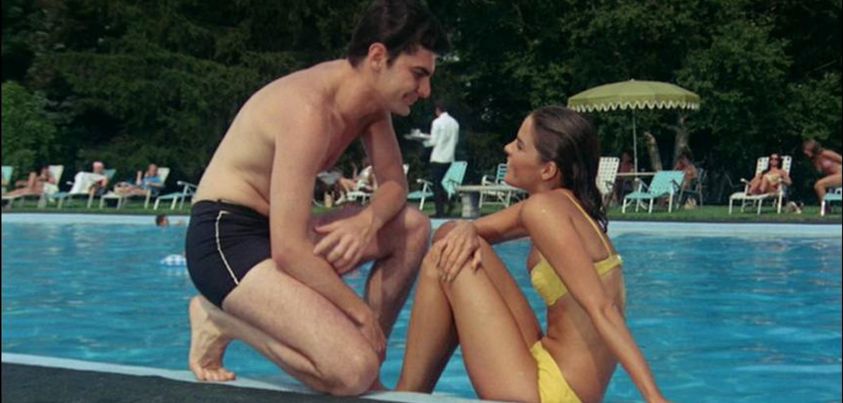 Major themes of this captivating story by Philip Roth are passion, sexuality, Jewish identity, and social class. When Neil, a twenty-three-year-old man from a working class Jewish family falls for Brenda, a spoiled college student from a wealthy one, the relationship appears doomed. Brenda’s competitive nature, Neil’s idealism, and his daily encounters with her emotionally dysfunctional family, lead to snide comments and constant bickering between them. The glue that holds their relationship together is sex, and readers are left to decide if Brenda ended it accidentally or deliberately. Other themes include family, materialism, manipulation, and control.
Major themes of this captivating story by Philip Roth are passion, sexuality, Jewish identity, and social class. When Neil, a twenty-three-year-old man from a working class Jewish family falls for Brenda, a spoiled college student from a wealthy one, the relationship appears doomed. Brenda’s competitive nature, Neil’s idealism, and his daily encounters with her emotionally dysfunctional family, lead to snide comments and constant bickering between them. The glue that holds their relationship together is sex, and readers are left to decide if Brenda ended it accidentally or deliberately. Other themes include family, materialism, manipulation, and control.
More…
The Willows
 This story from Algernon Blackwood about a canoe trip gone wrong is considered one of the greatest supernatural thrillers of all time. A feature is Blackwood’s ability to build and sustain terror through atmosphere alone. The canoeists camp on a small island among the idyllic, willow-lined channels of the swollen Danube delta. Their campsite sits on the boundary between the known world and another. A malevolent presence has become aware of their existence, and stalks the creeping willows looking for a human sacrifice. Themes: nature, camaraderie, rationality vs. fear, courage, sacrifice, the supernatural. More…
This story from Algernon Blackwood about a canoe trip gone wrong is considered one of the greatest supernatural thrillers of all time. A feature is Blackwood’s ability to build and sustain terror through atmosphere alone. The canoeists camp on a small island among the idyllic, willow-lined channels of the swollen Danube delta. Their campsite sits on the boundary between the known world and another. A malevolent presence has become aware of their existence, and stalks the creeping willows looking for a human sacrifice. Themes: nature, camaraderie, rationality vs. fear, courage, sacrifice, the supernatural. More…
Metamorphosis
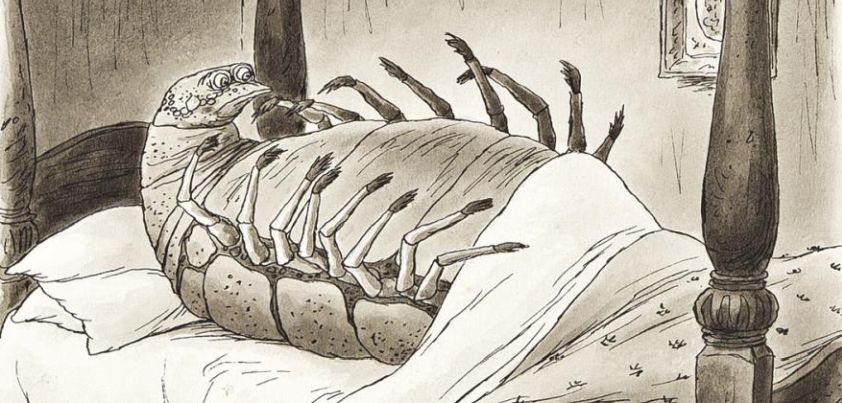 In this enigmatic story from Franz Kafka, a man who works hard as a traveling salesman to support his parents and younger sister wakes up one morning having metamorphosed into a giant bug. The father brutally confines the man/bug to his room, and for a period he/it is treated with consideration and compassion by the mother and daughter. However, as the family struggles to deal with their new financial situation, he/it gets less and less attention and ultimately suffers a rather cruel end. Themes include family, identity, self-sacrifice, alienation, transformation, isolation, betrayal, and the absurdity of life. More…
In this enigmatic story from Franz Kafka, a man who works hard as a traveling salesman to support his parents and younger sister wakes up one morning having metamorphosed into a giant bug. The father brutally confines the man/bug to his room, and for a period he/it is treated with consideration and compassion by the mother and daughter. However, as the family struggles to deal with their new financial situation, he/it gets less and less attention and ultimately suffers a rather cruel end. Themes include family, identity, self-sacrifice, alienation, transformation, isolation, betrayal, and the absurdity of life. More…
The Man That Corrupted Hadleyburg
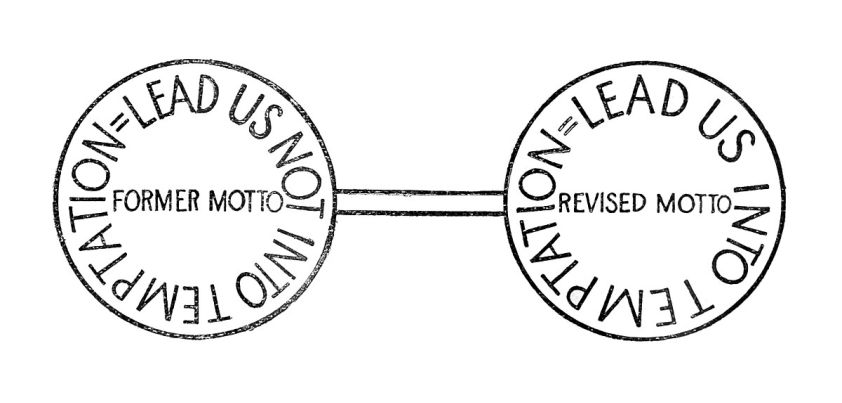 Samuel Clemens (aka Mark Twain)’s imaginary Hadleyburg is a remarkable place. Despite its reputation for being the most honest and upright town in all the region, its citizens managed to offend a vindictive passing stranger. The visitor was so upset that he came up with an elaborate plan to destroy the town’s image. Ironically, as the story plays out, we learn that Hadleyburg’s version of “honesty” came at a price. It is a mean, hard, stingy town, and hasn’t a virtue in the world. Themes: revenge, appearance vs. reality, hypocrisy, temptation, morality vs. greed, “herd mentality”, guilt and shame. More…
Samuel Clemens (aka Mark Twain)’s imaginary Hadleyburg is a remarkable place. Despite its reputation for being the most honest and upright town in all the region, its citizens managed to offend a vindictive passing stranger. The visitor was so upset that he came up with an elaborate plan to destroy the town’s image. Ironically, as the story plays out, we learn that Hadleyburg’s version of “honesty” came at a price. It is a mean, hard, stingy town, and hasn’t a virtue in the world. Themes: revenge, appearance vs. reality, hypocrisy, temptation, morality vs. greed, “herd mentality”, guilt and shame. More…
Kitchen
 The major themes of this novella by Mahoko (aka Banana) Yoshimoto are death, grieving, loneliness, friendship/love, and the transience and precious nature of life. The two major characters (Mikage and Yuichi) go through a similar process after being left alone in the world following the death of a loved-one. Fortunately, each finds the strength to rebuild their life thanks to the friendship and support of the other. A common thread in the story is “the kitchen”, the central focus of many Japanese homes symbolizing warmth, security and connection. Other themes: food and cooking, family, gender, mysticism. More…
The major themes of this novella by Mahoko (aka Banana) Yoshimoto are death, grieving, loneliness, friendship/love, and the transience and precious nature of life. The two major characters (Mikage and Yuichi) go through a similar process after being left alone in the world following the death of a loved-one. Fortunately, each finds the strength to rebuild their life thanks to the friendship and support of the other. A common thread in the story is “the kitchen”, the central focus of many Japanese homes symbolizing warmth, security and connection. Other themes: food and cooking, family, gender, mysticism. More…
The Lifted Veil
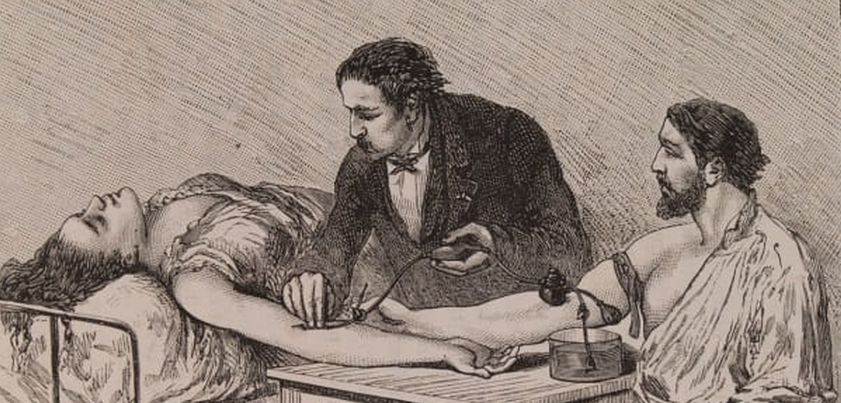 The titular veil in this story by Mary Ann Evans (aka George Eliot) could refer to several things: 1) the veils of time and private thought, lifted by the protagonist’s psychic powers; 2) the veil of innocence, lifted when his future wife’s narcissistic, manipulative nature is revealed; and 3) the veil of death, lifted when a dead woman is brought back to life and reveals that his wife is planning to murder him. Themes include alienation and isolation, the supernatural (clairvoyance), betrayal, despair, free-will vs. fate, scientific morality (playing God), death. More…
The titular veil in this story by Mary Ann Evans (aka George Eliot) could refer to several things: 1) the veils of time and private thought, lifted by the protagonist’s psychic powers; 2) the veil of innocence, lifted when his future wife’s narcissistic, manipulative nature is revealed; and 3) the veil of death, lifted when a dead woman is brought back to life and reveals that his wife is planning to murder him. Themes include alienation and isolation, the supernatural (clairvoyance), betrayal, despair, free-will vs. fate, scientific morality (playing God), death. More…
Waldo
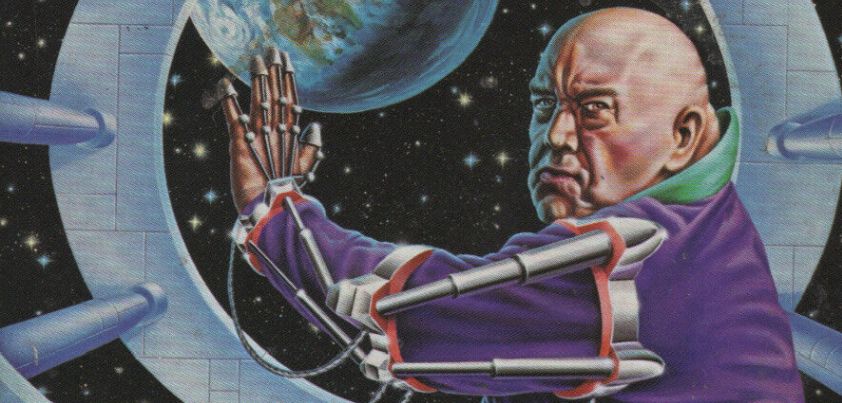 In this science fiction fantasy by Robert Heinlein, Earth needs help from “Waldo”, an eccentric genius born with degenerative muscle weakness. Angry at mankind after being cheated out of a ground-breaking invention, Waldo lives as a recluse in a gravity-free home in orbit above the planet. Earth’s problem is a series of physically impossible breakdowns in “deKalbs”, radiant power receptors used to power everything from vehicles to cities. With help from a little magic, he not only solves this but also makes three other important discoveries. Themes: identity, conquering disability, self-reliance and independence, science vs. “magic”. More…
In this science fiction fantasy by Robert Heinlein, Earth needs help from “Waldo”, an eccentric genius born with degenerative muscle weakness. Angry at mankind after being cheated out of a ground-breaking invention, Waldo lives as a recluse in a gravity-free home in orbit above the planet. Earth’s problem is a series of physically impossible breakdowns in “deKalbs”, radiant power receptors used to power everything from vehicles to cities. With help from a little magic, he not only solves this but also makes three other important discoveries. Themes: identity, conquering disability, self-reliance and independence, science vs. “magic”. More…
The Bear
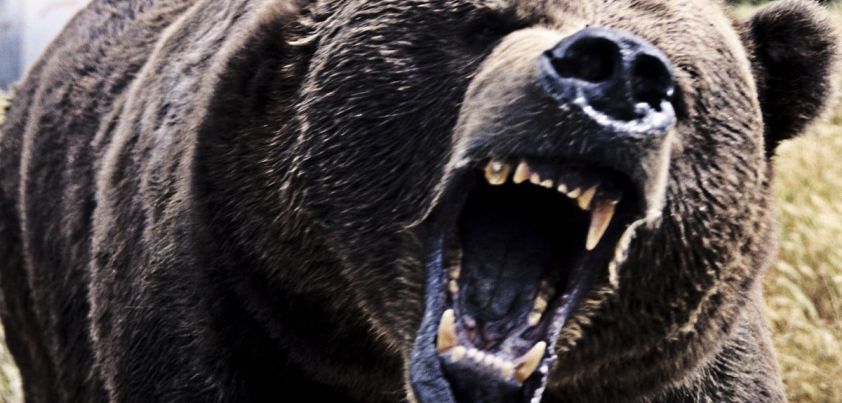 William Faulkner published several versions of this classic story, the most notable of which are a short story that appeared in the Saturday Evening Post and a novel-sized chapter in his book, Go Down, Moses. In the short story, an unnamed boy becomes a skilled woodsman over six years of annual hunting trips. His dream is to bag “Old Ben”, a huge bear that has terrorized farmers on the fringes of their hunting grounds for years. When he finally gets the chance, he doesn’t shoot. Themes: family, land and people ownership, racial identity, love of and respect for the wilderness. More…
William Faulkner published several versions of this classic story, the most notable of which are a short story that appeared in the Saturday Evening Post and a novel-sized chapter in his book, Go Down, Moses. In the short story, an unnamed boy becomes a skilled woodsman over six years of annual hunting trips. His dream is to bag “Old Ben”, a huge bear that has terrorized farmers on the fringes of their hunting grounds for years. When he finally gets the chance, he doesn’t shoot. Themes: family, land and people ownership, racial identity, love of and respect for the wilderness. More…
The Old Man and the Sea
 The central character in this award-winning novella by Ernest Hemingway is a down on his luck, aging fisherman who hasn’t caught a fish for 84 days. Convinced things are about to change, he ventures further out to sea than usual and hooks a giant marlin longer than his small boat. He finally reels it in after a three-day struggle and secures it to the side of his boat. Sadly, his prize is “stolen” on the way back to shore. Themes: man vs. nature, friendship, luck, memories, perseverance, suffering, religion, pride, defeat (a man can be destroyed but not defeated). More…
The central character in this award-winning novella by Ernest Hemingway is a down on his luck, aging fisherman who hasn’t caught a fish for 84 days. Convinced things are about to change, he ventures further out to sea than usual and hooks a giant marlin longer than his small boat. He finally reels it in after a three-day struggle and secures it to the side of his boat. Sadly, his prize is “stolen” on the way back to shore. Themes: man vs. nature, friendship, luck, memories, perseverance, suffering, religion, pride, defeat (a man can be destroyed but not defeated). More…